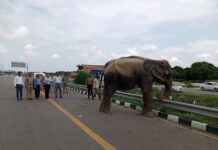(Harllen Kaur, Intern Journalist)New Delhi Lal Bahadur Shastri is the name that killed Pakistan by entering her house. During his tenure, the Indian army gave a befitting reply to Pakistan and waved its flag till Lahore. Apart from this, he was also such a sincere person that later all the won land was returned to Pakistan. He gave the slogan of Jai Jawan Jai Kisan. When the country faced a severe famine, the people of the country started fasting for a day at their behest. At his behest, people donated freely for the war in Pakistan. His honesty is rarely seen in public life. He resigned from the post taking moral responsibility for the railway accident during the tenure of his Railway Minister. The history of modern India has been an example of simplicity and honesty all his life.
Under the Servants of India Society, he was given a financial aid of Rs 50. Once, he asked his wife how much the house cost. Then his wife paid 40 rupees. After this, he himself sought to reduce financial aid. Shastri never used a government car for personal use. Once his son used it privately, he deposited the money in the government account in kilometers. When he became the Prime Minister of the country, he had neither his house nor any car. There was not even enough money in his account to buy the car. Later, at the behest of the children, he bought a car by taking a loan from the bank.
He could not even fully repay the loan for this car that he died in Tashkent. After this, the then Prime Minister Indira Gandhi recommended him to forgive his loan, but his wife refused to do soThis son of India was born on 2 October 1904 in Mughalsarai, Uttar Pradesh. He was fondly called ‘Nanhe’ as the youngest in the house. He received his primary education at his maternal grandfather’s home in Mirzapur due to his father’s death from his head. In the absence of money, he used to swim and cross the river and go to school. After studying Sanskrit from Kashi Vidyapeeth, he was given the title of ‘Shastri’. At an early age, he joined the non-cooperation movement with Gandhiji. After independence, he moved to Delhi and worked in several departments of the Union Cabinet. He held several ministerial posts including Railway Minister, Commerce, and Industry Minister, Home Minister. He breathed his last on 11 January 1966 in Tashkent





